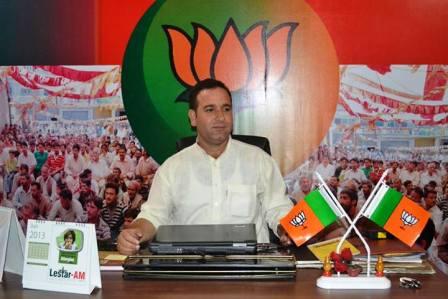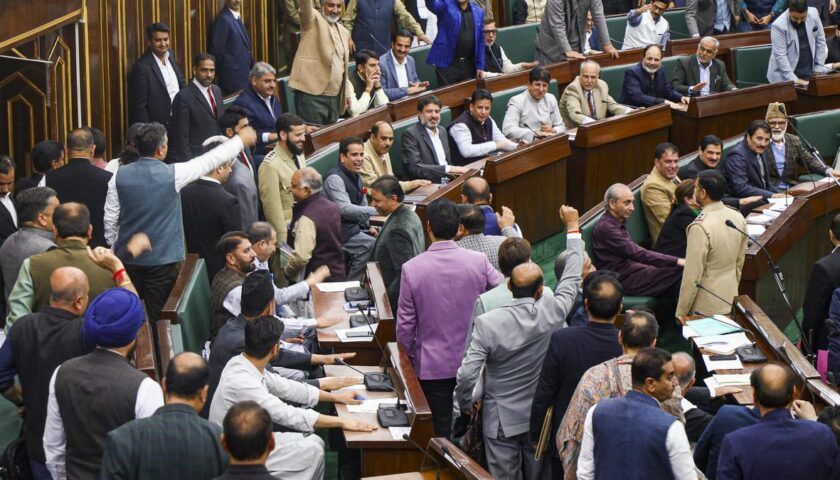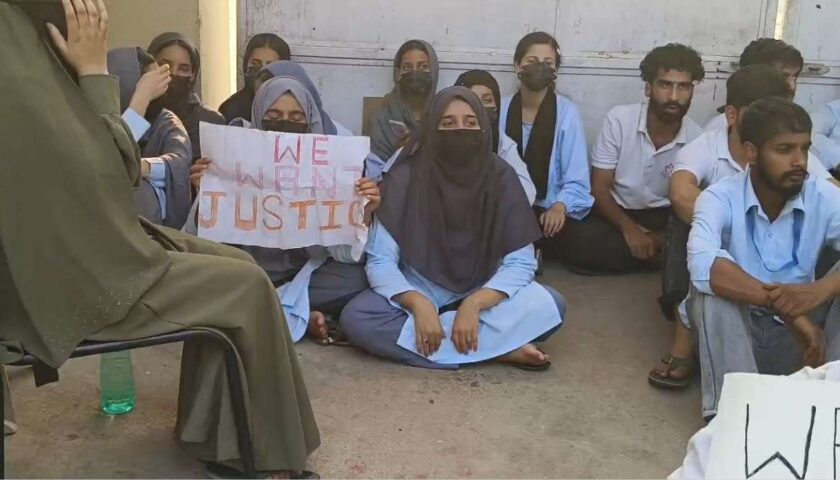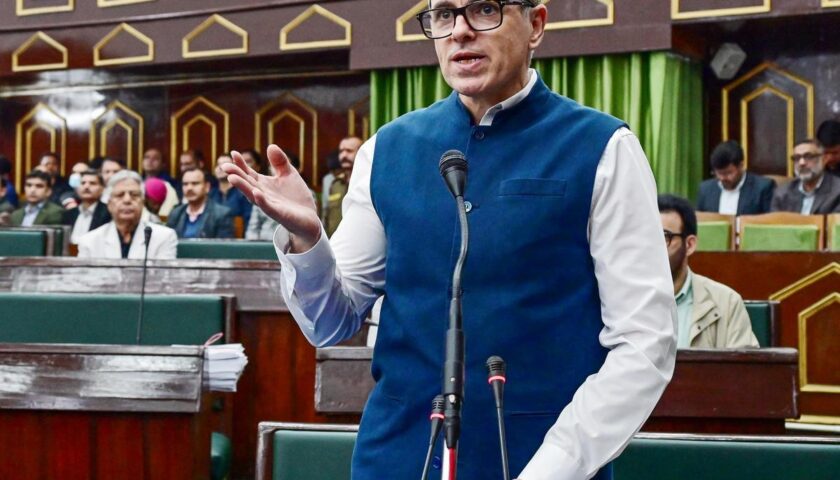Sunil Sharma Slams Congress: “Puppet of NC, No Independent Voice in Kashmir”
By: Javid Amin | 13 October 2025
“Congress Has No Independent Identity”: Sharma’s Sharp Attack
On October 13, 2025, Leader of Opposition Sunil Sharma launched a pointed political attack on the Congress party, accusing it of functioning as a “puppet” of the National Conference. Speaking to reporters in Srinagar, Sharma said:
“Congress has no existence in Jammu & Kashmir. It is completely subservient to the National Conference and the Abdullah family.”
His remarks came against the backdrop of heightened political activity in the Union Territory, with alliances and rivalries sharpening as parties prepare for potential assembly elections and the Rajya Sabha polls later this month.
Historical Reference: “1975 Was Just the Beginning”
Sharma backed his allegations with historical context, pointing to the political developments of 1975, when Sheikh Mohammad Abdullah was appointed Chief Minister with Congress support.
“This is not new. In 1975, Sheikh Abdullah was imposed on Congress MLAs. Since then, Congress has only played second fiddle to NC. It has never had an independent political voice in Jammu & Kashmir.”
By invoking this historical moment, Sharma positioned the current political dynamics as a continuation of a long-standing pattern rather than a recent development.
Strategic Undercurrent: A Message to Voters
The timing and tone of Sharma’s statement are significant. As the opposition leader, he is not just attacking Congress but also questioning the credibility of the INDIA bloc in Jammu & Kashmir.
The INDIA alliance, which includes Congress and NC, has been facing internal friction over seat-sharing, especially after Congress opted out of the Rajya Sabha race citing the lack of a “safe seat.” Sharma’s remarks are designed to:
-
Undermine Congress’s claim of being an equal partner in the alliance
-
Highlight NC’s dominance and centralized leadership under the Abdullah family
-
Project BJP as the only “independent” and “strong” political force in the region
This rhetoric also appeals to voters who are skeptical of dynastic politics.
Political Context: Fractures in Opposition Unity
The opposition camp in Jammu & Kashmir is currently grappling with strategic disagreements:
-
Seat Sharing: Congress withdrew from the Rajya Sabha contest after failing to secure a winnable seat.
-
Alliance Trust Deficit: Several Congress leaders have expressed unease with NC’s unilateral decision-making.
-
Electoral Pressure: NC faces pressure to deliver strong results, while Congress risks being sidelined.
Sharma’s statement taps into these visible cracks, amplifying the perception that Congress is playing a subordinate role rather than shaping the opposition strategy.
Congress’s Shrinking Electoral Footprint
Congress’s electoral performance in Jammu & Kashmir has declined over the years, with the party struggling to:
-
Retain traditional voter bases
-
Counter NC’s dominance in the Valley and BJP’s in Jammu
-
Project a coherent regional leadership
Sharma’s claim that Congress “has no existence” may sound politically charged, but it also reflects a real challenge for the party — lack of a distinct identity in a polarized landscape.
BJP’s Political Calculation: Divide and Isolate
By branding Congress a “puppet,” Sharma’s messaging aims to drive a wedge between NC and Congress, potentially:
-
Weakening opposition unity
-
Creating doubts among Congress workers and voters
-
Consolidating BJP’s support base as the “only viable alternative”
This line of attack also fits into BJP’s broader national political strategy — portraying opposition alliances as opportunistic and dominated by dynastic parties.
Abdullah Family at the Centre of the Debate
A central thread in Sharma’s statement is the Abdullah family’s political dominance. Over decades, the family has remained at the heart of the NC’s political leadership.
By framing Congress as “subservient” to the Abdullahs, Sharma seeks to:
-
Tap into anti-dynasty sentiment among voters
-
Highlight lack of internal democracy in opposition parties
-
Contrast it with BJP’s image of centralized, strong-party leadership
This messaging could resonate with younger and undecided voters, especially in regions where anti-establishment sentiment runs high.
Reaction Within Political Circles
While Congress leaders have yet to issue a formal response, several alliance insiders privately acknowledge the tensions with NC over seat allocation and campaign strategy.
Political observers believe Sharma’s remarks will:
-
Intensify debates within the INDIA bloc over how decisions are made
-
Push Congress to assert itself more visibly to counter the perception of being overshadowed
-
Give BJP additional talking points in its campaign narrative
Voter Perspective: Trust Deficit and Identity Politics
On the ground, voter sentiment is evolving. People are increasingly aware of backroom political deals and alliances. Many voters express frustration with parties that appear to prioritize power-sharing over public issues like jobs, infrastructure, and governance.
By casting Congress as an “appendage” to NC, Sharma is speaking to voters disillusioned with traditional alliances. This could help BJP polarize the contest into a direct BJP vs. NC narrative, marginalizing Congress further.
Final Word: A Political Statement with Strategic Weight
Sunil Sharma’s remarks go beyond political theatrics. They represent a strategic positioning move by BJP in Jammu & Kashmir’s fast-evolving political chessboard.
By framing Congress as a weak ally under NC’s thumb, Sharma:
-
Challenges the credibility of the INDIA bloc
-
Reinforces BJP’s narrative of being the only independent and strong opposition
-
Positions the party for maximum electoral advantage in upcoming contests
Whether Congress chooses to rebut the attack forcefully or remain strategically silent could shape its role — or irrelevance — in the next phase of J&K’s politics.




